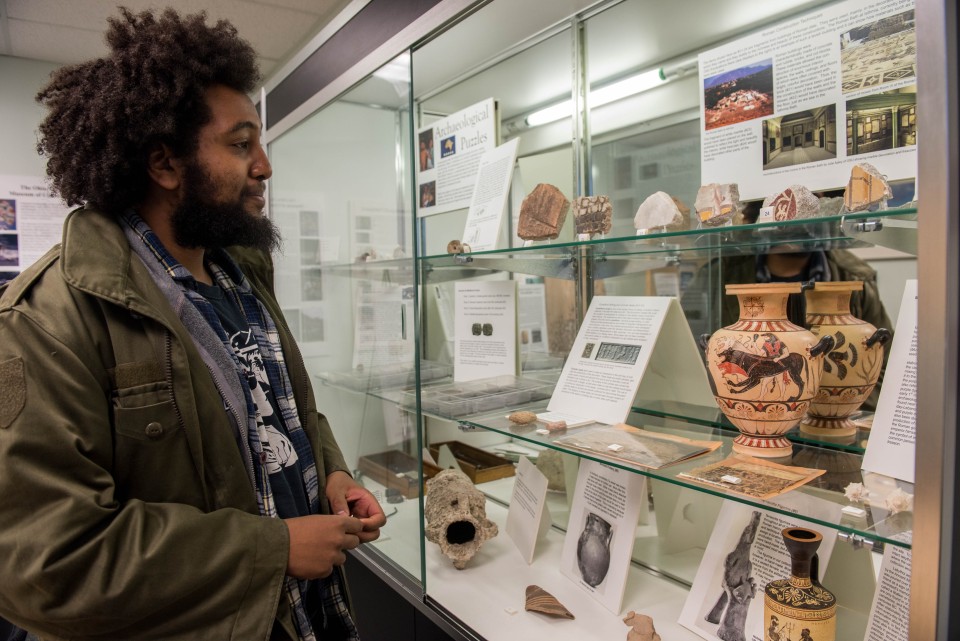
Research or inquiry-based assignments are those in which students are required to find, analyze, and use various information sources to:
- Explore an issue
- Answer a question
- Solve a problem
- Create new knowledge
Although they are common assignments, they are frequently sources of frustration for both instructors and students.
Outlined below are helpful steps that you can take as you design your research or inquiry-based assignments. In addition, each section includes questions to consider or actions you can take that may help lessen some of the misunderstandings between students and instructors regarding research or inquiry-based assignments.
Identify Learning Bottlenecks
As a start for designing effective research or inquiry-based assignments, it can be helpful to identify those places where students tend to get stuck, unable to perform specific tasks or move forward in their learning.
These can be referred to as learning bottlenecks.
Ask yourself
- Are there aspects of the assignment that significant numbers of students have struggled with in the past? For example, have you noticed that students tend to use inappropriate sources or struggle to cite the sources appropriately?
- What are the specific steps that students must take to overcome the bottleneck(s)? What do they need to understand or be able to do?
- Could students have any emotional bottlenecks related to the assignment or specific tasks within the assignment? For example, students may have had previous negative experiences with research assignments. Identifying and addressing fears or concerns related to these past experiences may be helpful.
These recommendations are based on the Decoding the Disciplines model, developed by David Pace and Joan Middendorf. For more information on identifying and addressing learning bottlenecks, see Decoding the Disciplines.
Identify Core Assumptions
You may understand the purpose and process for completing research assignments that are not clear to students. For example, you may expect students to actively engage in the conversation on their topic (e.g., advance an argument, make an interpretation, share their perspective), but may not directly convey this to students. You may make assumptions about what students already know about completing research assignments, which can influence the amount of guidance you provide to them. As a result, students may feel that they are being asked to meet expectations they didn’t even know existed or perform complex tasks with little guidance.
Identifying hidden expectations and underlying assumptions that you have and making these clear to students can help avoid misunderstandings (e.g., “I didn’t know I was supposed to cite peer-reviewed articles”).
Ask yourself
- Are there underlying expectations that I have about the purpose or process of the assignment that students might not be aware of?
- Am I expecting students to approach research as an iterative, inquiry-driven process (rather than a process of compiling and summarizing information)?
- Am I expecting that students will recognize scholarship as an ongoing conversation among scholars and researchers?
- Am I expecting that students will use certain types of search tools or information sources?
- Am I expecting that students will know how to identify credible, relevant, and appropriate information sources?
- Am I expecting that students know how scholars use sources and why it is important to provide appropriate attribution?
Use the Framework for Information Literacy
The Framework for Information Literacy for Higher Education (Association of College & Research Libraries, 2016) is a great resource you can use to identify potential learning bottlenecks. It highlights six core understandings about the purpose and process of research that are broadly shared among expert researchers, but that students may not yet have grasped. In addition, it outlines the skills (knowledge practices) and habits of mind (dispositions) that are important for novice researchers to develop.
To use the framework
- Review the six core concepts and highlight those that you think may be contributing to the bottlenecks that students are experiencing.
- For the selected core concepts, review the related knowledge practices and dispositions in order to identify specific learning bottlenecks.
For more information on the Framework, see: Information Literacy: Concepts and Teaching Strategies.
Consider Your Disciplinary Knowledge
As you become more experienced, you develop knowledge about how to conduct research in your field. Without realizing it, this knowledge can influence the expectations you have for students. For novice learners, especially those outside your field, these discipline-specific expectations may not be obvious.
Ask yourself
- What do I know about research or scholarship in my field that students may not be aware of? For example:
- Who are the authorities in my field? What qualifies as an authoritative source?
- What search tools or resources are commonly used in my field? Are there discipline-specific databases or highly cited journals?
- What method of attribution is used in my field?
- How might my disciplinary knowledge be contributing to the expectations I have for students?
- Is it necessary that students are able to meet the standards of research that are common in my field? For example: Is it necessary that students use the attribution method used in my field? In courses with primarily non-majors, requiring a discipline-specific attribution method may add an unneeded layer of complication.
These questions are based on Miller, S. D. (2018).

Scaffold Your Assignments
Completing a single large research assignment can be a challenge for students unfamiliar with academic research practices, especially when this assignment may account for a significant portion of a students’ grade.
Instead, you may want to:
- Break your large research assignment into smaller, connected assignments.
- Model each part of the process for your students and provide examples.
- Provide feedback and opportunities for questions after each part of the assignment.
Incorporate Library Resources
The Ohio State University Libraries offers various resources and services that students can use when completing their research assignments. To help your students make the most out of the available resources and services, we recommend you:
- Familiarize yourself with resources available through University Libraries, among them:
- If one does not already exist, consider requesting a course-specific guide for your class. To request a course guide, contact your Subject Librarian.
- Confirm that the resources students need to complete research assignments are available. (For example, checking that the Libraries’ provides access to the database or journal you want students to use.)
- Link directly to available ebooks, journals, articles, and streaming videos in your Canvas course. For guidelines, go to Linking to Library Licensed Resources
- Check the number of students who can use e-resources at the same time. (For example, some ebooks allow only a limited number of concurrent users)
- Consider incorporating content from the free, open-access textbook: Choosing and Using Sources: A Guide to Academic Research. For additional support, see: Choosing and Using Sources: Instructor Resources.
Get Help
Developing effective research or inquiry-based assignments can be challenging. But, don’t think you have to go it alone. The University Libraries provides support for instructors to develop meaningful and equitable research or inquiry-based assignments. For assistance, email LIB-Teach@osu.edu.
Some additional steps you can take include:
- Have a colleague or student review your research assignment instructions and provide feedback.
- Consider available professional development opportunities, including the following teaching endorsements available through the Drake Institute for Teaching and Learning:
References
Miller, S. D. (2018). Diving deep: Reflective questions for identifying tacit disciplinary information literacy knowledge practices, dispositions, and values through the ACRL framework for information literacy. The Journal of Academic Librarianship, 44(3), 412-418.

